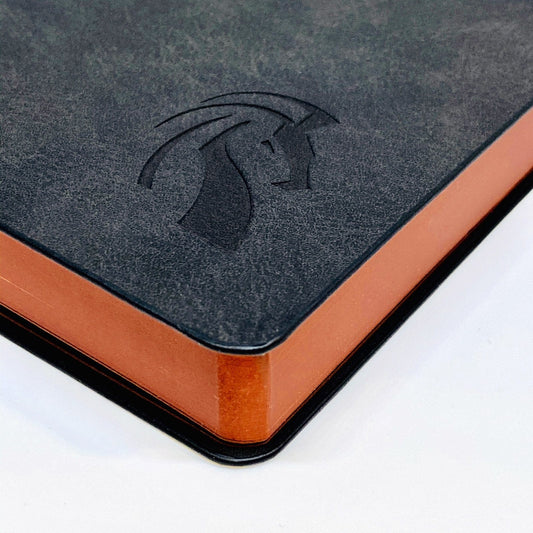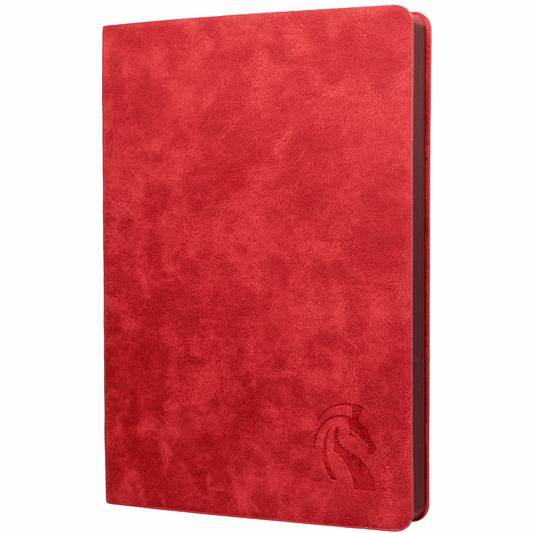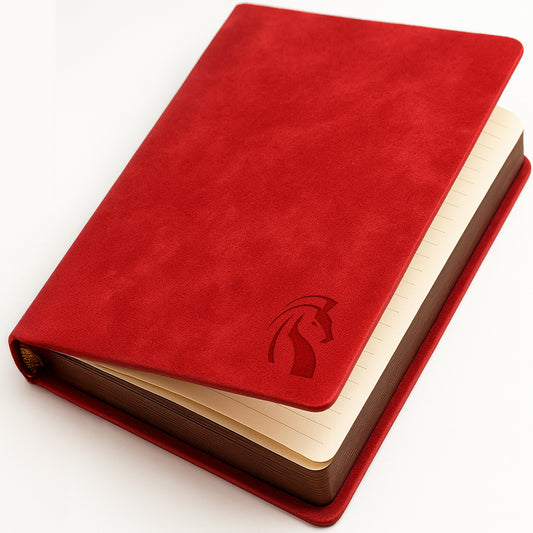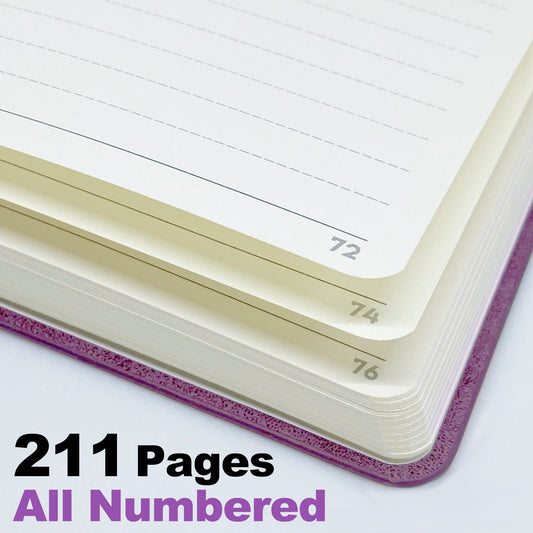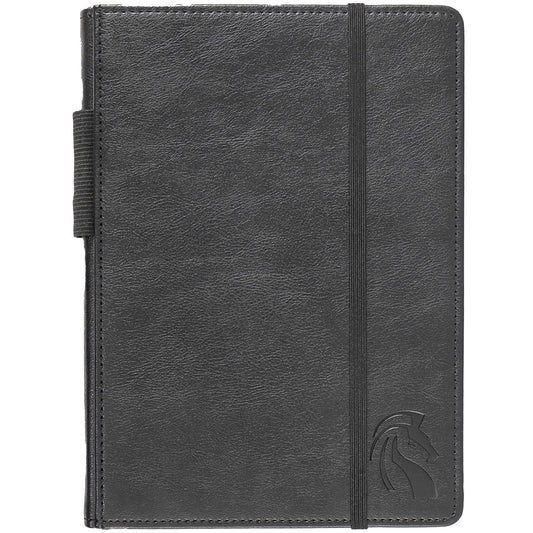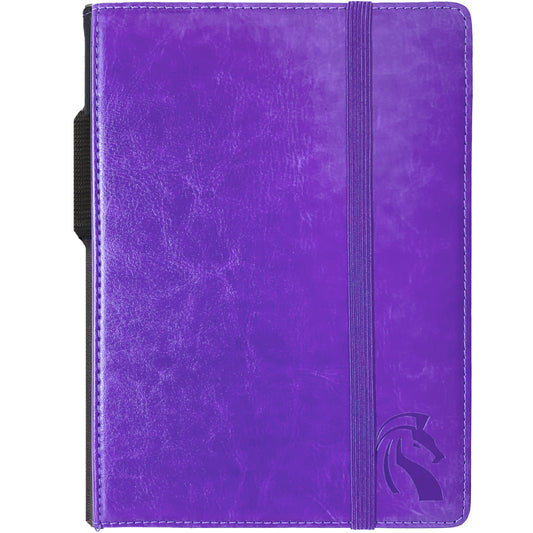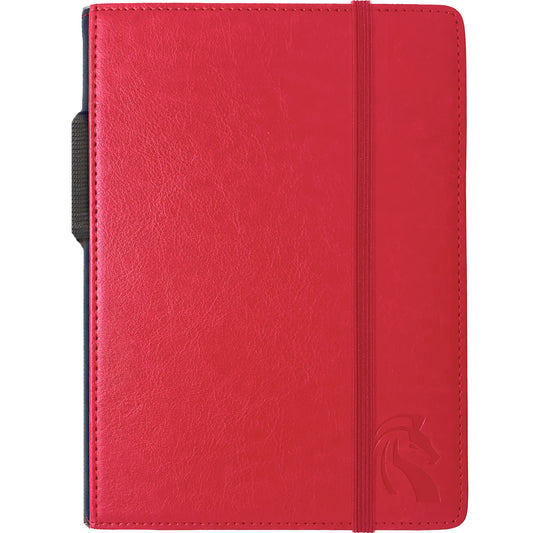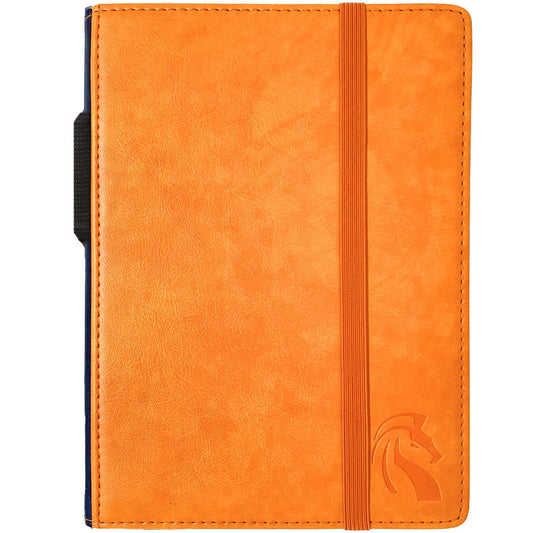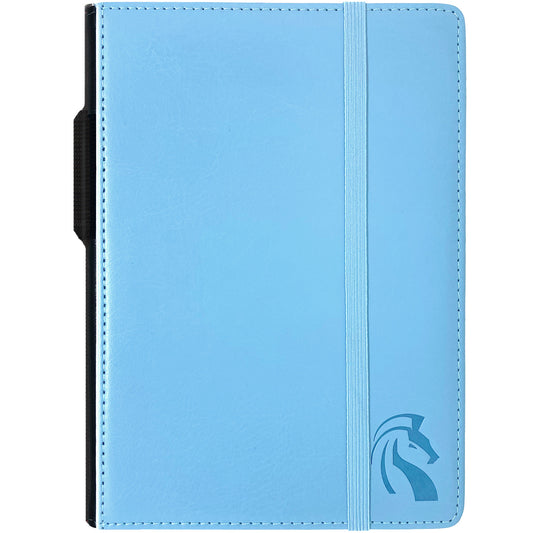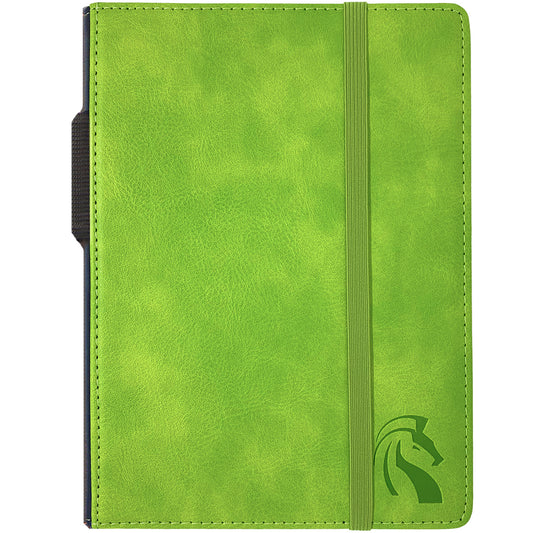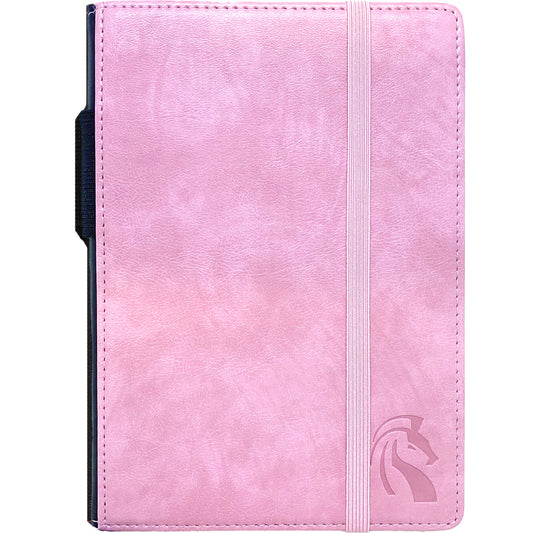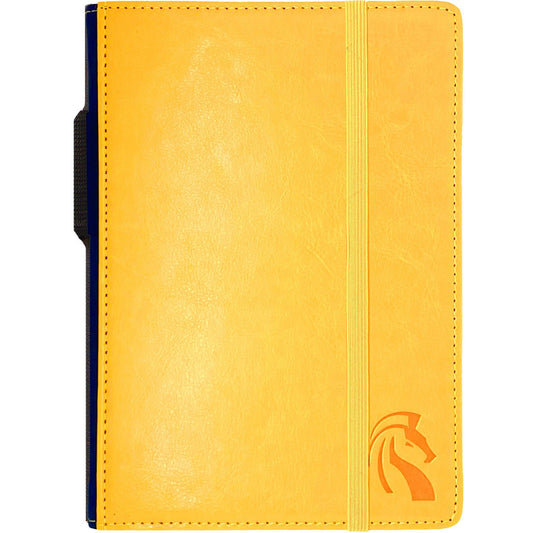A5 Soft Cover Faux Leather Journal Notebook For Tarot Readings
-
ARIEGEOIS | Ashgray Black - A5 Lined Journal Notebook
Regular price $24.95 USDRegular priceUnit price per$30.00 USDSale price $24.95 USDSale -
GARRANO | Cocoa Brown - A5 Lined Journal Notebook
Regular price $24.95 USDRegular priceUnit price per$30.00 USDSale price $24.95 USDSale -
CASPIAN | Royal Red - A5 Lined Journal - Soft Cover
Regular price $24.95 USDRegular priceUnit price per$30.00 USDSale price $24.95 USDSold out -
GALLOWAY | Khaki Cream - A5 Lined Journal Notebook
Regular price $24.95 USDRegular priceUnit price per$30.00 USDSale price $24.95 USDSale -
ROAN | Royal Blue - A5 Lined Journal
Regular price $24.95 USDRegular priceUnit price per$30.00 USDSale price $24.95 USDSale -
JENNET | Juniper Green - A5 Lined Journal Notebook
Regular price $24.95 USDRegular priceUnit price per$30.00 USDSale price $24.95 USDSale -
CHAROLAIS | Grape Purple - A5 Lined Journal Notebook
Regular price $30.00 USDRegular priceUnit price per -
GYPSY | Rosaye Pink - A5 Lined Journal Notebook
Regular price $30.00 USDRegular priceUnit price per -
AKHALTEKE | Ochre Yellow - A5 Lined Journal Notebook
Regular price $30.00 USDRegular priceUnit price per
A5 Hard Cover Faux Leather Journal Notebook For Tarot Readings
-
A5 Hardcover Journal Notebook - Black Faux Leather
Regular price $22.95 USDRegular priceUnit price per$25.00 USDSale price $22.95 USDSale -
Classic Brown | Brown Journal Notebook | A5 Hardcover Faux Leather
Regular price $22.95 USDRegular priceUnit price per$25.00 USDSale price $22.95 USDSale -
Proactive Purple | Purple Journal Notebook | A5 Hardcover Faux Leather
Regular price $19.95 USDRegular priceUnit price per$25.00 USDSale price $19.95 USDSold out -
Visionary Red | Red Journal Notebook | A5 Hardcover Faux Leather
Regular price $19.95 USDRegular priceUnit price per$25.00 USDSale price $19.95 USDSale -
Optimist Orange | Orange Journal Notebook | A5 Hardcover Faux Leather
Regular price $25.00 USDRegular priceUnit price per -
Clarity Blue | Light Baby Blue Journal Notebook | A5 Hardcover Faux Leather
Regular price $19.95 USDRegular priceUnit price per$25.00 USDSale price $19.95 USDSale -
Growthful Green | Green Journal Notebook | A5 Hardcover Faux Leather
Regular price $25.00 USDRegular priceUnit price per -
Passionate Pink | Pink Journal Notebook | A5 Hardcover Faux Leather
Regular price $19.95 USDRegular priceUnit price per$25.00 USDSale price $19.95 USDSold out -
Ambition Yellow | Yellow Journal Notebook | A5 Hardcover Faux Leather
Regular price $25.00 USDRegular priceUnit price per
Introduction
Tarot readings are a powerful tool for self-reflection, insight, and personal growth. Whether you're a seasoned tarot reader or a beginner exploring card interpretations, keeping a journal notebook for tarot readings can enhance your understanding and deepen your intuition.
Journaling allows you to track card spreads, document personal insights, and recognize patterns over time. However, without a structured system, tarot notes can become scattered and difficult to revisit. A high-quality tarot journal, such as LeStallion’s premium notebooks, provides a well-organized space to log readings and explore their deeper meanings.
Why a Tarot Journal is Essential for Every Reader
A tarot journal isn’t just a notebook—it’s a sacred space for personal exploration. Writing down tarot insights can help clarify confusing messages and reveal patterns that might go unnoticed otherwise.
A structured tarot notebook allows you to:
- Record your spreads – Write down your tarot card layouts, positions, and interpretations.
- Explore card meanings – Keep track of personal reflections and connections between different readings.
- Enhance intuition – Over time, journaling strengthens your ability to trust your instincts and gut feelings when reading cards.
- Track emotional patterns – Tarot often reflects your inner world; writing regularly can reveal shifts in mood and energy.
A well-designed tarot journal, such as LeStallion’s notebook, features numbered pages and a built-in table of contents, making it easy to find past readings and observe long-term progress.
Common Challenges in Tarot Journaling and How to Overcome Them
Many tarot readers struggle to maintain a consistent journal practice. Here are some common problems and solutions:
- Forgetting to write down insights – Establish a habit of recording every reading, even if it’s just a few sentences.
- Feeling overwhelmed by too much information – Keep it simple by using bullet points or key takeaways from your readings.
- Losing track of past readings – A structured notebook with numbered pages (like LeStallion’s) helps keep everything in one place.
- Difficulty interpreting symbols and messages – Write down your immediate reaction to each card before checking traditional meanings.
By overcoming these challenges, your tarot journaling practice will become more intuitive and rewarding.
The Power of Tracking Tarot Readings Over Time
Tarot isn’t just about one-off insights—it’s about understanding patterns, synchronicities, and deeper meanings in your life. By tracking tarot readings over weeks and months, you can:
- Recognize recurring cards that appear frequently in different spreads.
- Identify personal themes that emerge in relation to life events.
- Understand shifts in energy and decision-making through long-term journaling.
LeStallion’s 211 pages of thick, 120GSM wood-free paper provide a durable and luxurious writing experience, ensuring your insights last for years to come.
A Personal Journey: How Tarot Journaling Changed Sophia’s Life
Sophia had always been intrigued by tarot but struggled to connect with the meanings of the cards. She would pull a card, look up its definition, and then forget what it meant the next day.
That changed when she started using a journal notebook for tarot readings. She began writing down her daily draws, noting her feelings, thoughts, and life experiences at the time of each reading.
Over time, she noticed patterns:
- The High Priestess often appeared when she needed to trust her intuition.
- The Tower showed up during periods of major change and transformation.
- The Ten of Pentacles emerged when she focused on financial stability.
After six months of journaling, Sophia realized she no longer needed to rely on external definitions—she had developed her own intuitive understanding of the tarot. LeStallion’s journal, with its dashed lined pages and a back pocket for extra notes, became her trusted tool for tracking her tarot journey.
Tips for Keeping a Tarot Journal Effectively
To make the most of your tarot notebook, follow these best practices:
- Write Regularly – Even if it’s just a one-card pull, document your thoughts every day or week.
- Use Tarot Spreads – Record different layouts, from the simple three-card spread to the Celtic Cross.
- Mark Important Themes – Highlight symbols, emotions, and repeated cards for long-term insight.
- Include Moon Phases and Astrological Influences – This can add a new layer of depth to your readings.
- Revisit Past Readings – Flip back through old entries to see how previous insights played out in your life.
How to Organize a Tarot Notebook for Maximum Insight
A well-organized tarot journal helps you track insights without feeling overwhelmed. Here’s how to set up your journal notebook for tarot readings effectively:
- Dedicate sections for daily readings, major arcana interpretations, and personal reflections.
- Use a built-in table of contents (like the one in LeStallion’s journal) to quickly find past readings.
- Experiment with different journaling styles, such as bullet journaling, freeform writing, or structured notes.
With a clear structure, your tarot journal becomes a valuable reference tool for years to come.
The Connection Between Tarot, Intuition, and Self-Reflection
Tarot is more than a divination tool—it’s a gateway to self-awareness, mindfulness, and deep reflection. Keeping a journal for tarot readings allows you to:
- Strengthen your intuition by recognizing personal patterns.
- Develop confidence in your interpretations.
- Use tarot as a tool for decision-making and personal growth.
Conclusion: Elevate Your Tarot Practice with a Dedicated Journal
A journal notebook for tarot readings is a powerful companion for any tarot reader—helping to organize insights, track patterns, and deepen interpretations.
LeStallion’s premium journals, featuring high-quality paper, numbered pages, and a built-in back pocket, provide the perfect space to document your tarot journey.



